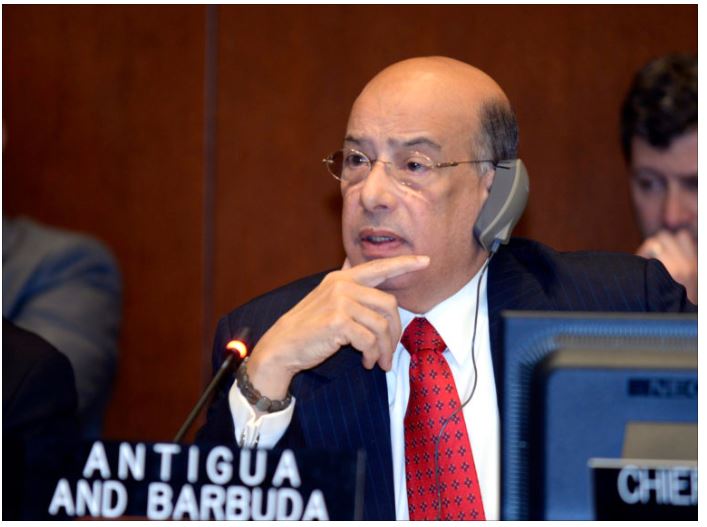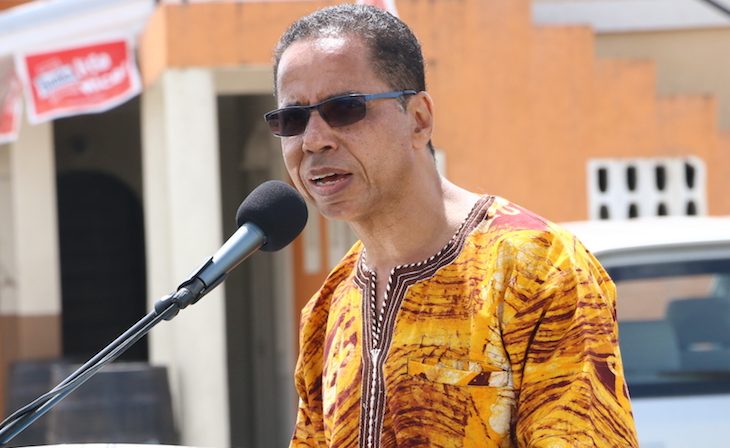by Dizzanne Billy – CNS Contributor
PORT-OF-SPAIN, Sep 20 2015
Dear Mr. Prime Minister,
This is a call for the newly appointed Government of the Republic of Trinidad and Tobago, lead by the People’s National Movement (PNM), to prioritise the environment. Climate change needs to be a crucial part of the national discussion. The mantle has been passed on to you and you are to be the protectors of the environment of Trinidad and Tobago.
The people have voted you into office with the hope that you will hold all the matters which affect them in high esteem. Climate change is one of these. As a matter of fact, the environment must be recognised as being pervasive, it affects every aspect of our lives and therefore is plays a crucial role in each sector. This ideal is mirrored in the PNM’s 2015 election manifesto and therefore we will hold you to your promises. The manifesto states that “to preserve and protect the environment, the PNM will put environmental considerations at the heart of development so that they will guide every decision we make as a Government.” Please stay true to this.
The public will be watching you because we need proper governance.
Good governance is the foundation of a strong economy, society, and environment and we need it to prevail at every level. Given its ubiquitous nature, environmental governance is a great way to start. Environmental considerations must therefore be foremost in the management of all national activities, with sustainability as the goal. The PNM has the chance now to build a country that is an environmental stalwart for the Caribbean and all Small Island Developing States (SIDS). This must begin with proper representation and action at the upcoming Conference of Parties (COP21) in Paris in December 2015. We need representation that is unafraid to stand up for the needs to Small Island Developing States in the light of our vulnerability to climate change.
No country can escape the effects of climate change. However, even though SIDS are among the least responsible of all nations for climate change, we are feeling the adverse effects more severely than the nations spewing the highest quantities of greenhouse gases into the atmosphere. Temperatures are soaring, putting our health and our food security at risk. Furthermore, as can be seen in the case of the Pacific island of Kiribati, entire islands are facing the real risk of disappearing, and even in Trinidad and Tobago our coastlines are slipping away.
A recent Harvard report highlights that phasing out fossil fuels and replacing them with renewable energy could save millions of dollars in health costs. Added to this, according to a report produced by New Climate Economy, investing in public and low emission transport, building efficiency, and waste management in cities could generate savings with a current value of US$17 trillion by 2050.
The benefits of investment in clean energy are plentiful.
Just as Uganda’s lead negotiator has asserted on behalf of forty-eight of the world’s’ least developed nations, we need “total emission to reach zero between 2060 and 2080.” In order to achieve this drastic reduction in greenhouse gas emissions, close to one hundred and thirty countries have now come forward to support a long-term goal in the Paris Agreement, to be decided upon in December, that will be an overarching energy goal to fundamentally and collectively transform the global energy sector by 2050, bringing total decarbonisation into fruition.
These are the trends Trinidad and Tobago needs to follow. We need to wholeheartedly support the long term goal, which will facilitate greater climate action. Let us not continue to be one of the only small island nations opposed to zero emission language by 2050.
Yes, Trinidad and Tobago is an oil and gas-dependent country and it is expected that the decision may be a difficult one. However, countries and cities of the world are already beginning to make the transition and we must not be left behind in the race toward renewable energy.
Costa Rica is making impressive strides on its way to becoming the first developing country to have one hundred per cent renewable electricity and a one hundred per cent renewable energy matrix. In Afghanistan, work is being done which has seen the provinces of Badakhshan and Takhar benefit greatly, with 11,500 homes, schools, markets, local businesses and hospitals being equipped with electricity through a mix of hydro and solar plants. China continues to make large investments in renewable energy, and Albania is a prime example of government supporting renewable energy metamorphosis through constitutional means. Just like these countries we must grasp the opportunity to advance our energy sector by supporting the long term, zero carbon goal and acting on it.
Mr. Prime Minister, this is a call for you and the newly elected Government of Trinidad and Tobago to hold true to your promises to “develop climate change adaptation and mitigation strategies to safeguard most affected; increase the acreage for green public spaces; promote energy efficiency and renewable energy sources including wind and solar as the means to increase energy security and reduce our reliance on fossil fuels to power the economy; increase research and develop training programmes in state of the art technologies; assist farmers to implement sustainable agricultural practices through training programmes on the impacts of climate change on agriculture; utilise the National Gas Corporation as an investment vehicle for new energy and hydrocarbon industries; and maximise the use of renewable energy through incentives, concessions, and enabling legislation.“
Electoral ink has been washed off, the future of the environment of Trinidad and Tobago is in your hand, and it needs a champion. Mr. Prime Minister, are we primed for Paris? We need to get our greenhouse gas emissions down to zero, will you be our Captain Planet?
Dizzanne Billy, 24, operates in the role of President of the Caribbean Youth Environment Network (CYEN) in Trinidad and Tobago, where she works in the areas of education and public awareness with regard to environment and development issues. She is a climate tracker with Adopt-A-Negotiator and a young advocate for climate change action.



